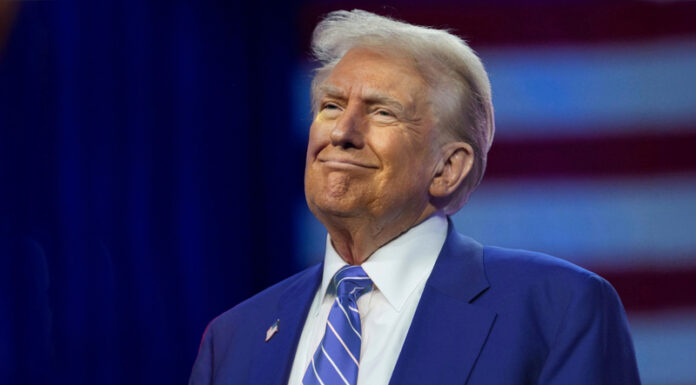A federal judge in Washington, D.C. issued a blistering rebuke to the Trump administration’s attempt to remove Hampton Dellinger, head of the Office of Special Counsel (OSC), with a memorable declaration comparing the White House’s actions to a destructive bull in a china shop.
“What A Mess!” wrote U.S. District Judge Amy Berman Jackson in her scathing Wednesday, February 12, 2025 order, describing the aftermath of the administration’s attempted termination. The quote came in a pointed footnote where Jackson observed, “Any disruption to the work of the agency was occasioned by the White House. It’s as if the bull in the china shop looked back over his shoulder and said, ‘What a mess!'”
Dellinger, confirmed by the Senate in February 2024 to lead the independent agency that enforces whistleblower protections and political corruption laws, received an unexpected email termination last week from Sergio Gor, assistant to the president and director of the presidential personnel office. The termination notice did not explain the dismissal and came without warning.
In her order, Judge Jackson pointed out that under federal law, the OSC head can only be removed for three reasons: “inefficiency, neglect of duty, or malfeasance in office.” The White House cited none of these criteria in Dellinger’s termination notice. Instead, the administration argued that the public interest would be “better served by a Special Counsel who holds the President’s confidence” – a justification Jackson dismissed as legally insufficient.
Despite the court’s administrative stay, the Department of Justice moved to replace Dellinger with Doug Collins, the Secretary of Veterans Affairs and acting head of the Office of Government Ethics. The DOJ then attempted to appeal Jackson’s order, claiming it represented “an extraordinary intrusion into the President’s authority.” The U.S. Court of Appeals for the District of Columbia rejected this appeal, ruling it lacked jurisdiction and noting the government’s failure to demonstrate urgency.
During his tenure, Dellinger has demonstrated nonpartisan oversight. Before his attempted removal, he had found that former Navy Secretary Carlos Del Toro and senior Biden White House official Neera Tanden had violated the Hatch Act, showing the office’s commitment to investigating officials regardless of political affiliation.
The OSC’s role extends beyond political oversight. The agency investigates whistleblower claims of reprisal, pursues disciplinary action against employees who punish whistleblowers, and provides a secure channel for federal employees to disclose government wrongdoing. Through its investigations of waste, fraud, and abuse, the office has helped save taxpayers billions of dollars.
Judge Jackson refuted the administration’s argument that Dellinger’s continued service would disrupt the agency’s operations, pointing out the absence of any factual basis to support this claim. Instead, she highlighted that Dellinger had fulfilled his duties over the past year without incident. According to Jackson, the real source of disruption would be his abrupt removal, which risked destabilizing ongoing administrative processes and investigations.
The attempted removal of Dellinger follows a pattern of controversial dismissals by the Trump administration, including Democratic members of the Equal Employment Opportunity Commission and the National Labor Relations Board. These actions have faced legal challenges as violations of federal regulations designed to protect the independence of government oversight agencies.
The judge dismissed the administration’s argument that Dellinger could be restored to his position if his lawsuit prevailed. Jackson emphasized that the absence of a lawfully appointed special counsel leader makes it impossible to know if key elements of the job, including the protection of sensitive information and ongoing investigations, are being fulfilled.
The National Whistleblower Center has rallied support for Dellinger, urging supporters to contact their representatives and senators about the attempted termination. The organization emphasized that independence is essential for a Special Counsel to perform their duties effectively.
A preliminary injunction hearing scheduled for February 26 will determine whether Dellinger remains in his position beyond the temporary restraining order. The case has significant implications for the constitutional balance between presidential authority and congressional power to protect the independence of agency heads through statutory protections. Legal scholars note that the outcome could establish an important precedent regarding executive power in removing heads of independent agencies.







